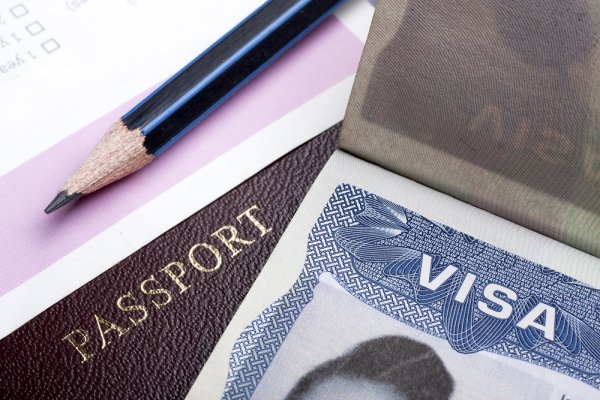Travel Essentials: Local Legal Issues
Living outside one’s home country has its challenges, not least of which are potential legal issues that might arise. This section discusses some of these issues, but is not intended to take the place of professional legal advice. One’s nationality, country of residence, marital status, spouse’s nationality, gender, sexual orientation, financial status, nationality of one’s children, and diplomatic status may all play a role in these issues. If any item is of concern, we recommend that you speak with a legal, accounting, or other professional for specific advice.
Foreign Nationals Are Subject to Local Law
Foreign nationals are subject to the local laws of the country in which they find themselves. This is true whether living there or only visiting. With very limited exceptions (such as being a diplomat), this is true throughout the world, and status as an expatriate or professed ignorance of the local law is not a defense to violating the law.
Traffic Stop Procedures
Expected behavior during a traffic stop in another country, and your rights during that encounter, depend greatly on local custom and procedure. In some countries it is customary to remain in the car during a traffic stop, while in others it is customary to exit the car. Some countries require police to have a reasonable suspicion or probable cause in order to search a car, but this is not true in countries where police have greater powers and citizens have fewer rights.
If planning to drive in a foreign country, it’s helpful to talk to a local resident before getting behind the wheel. The local resident will be able to describe typical procedures for traffic stops. Driving is viewed as a privilege, not a right, so one’s ability to refuse things like breathalyzer tests or other sobriety exercises is limited, and refusal to comply may actually be held against the driver.
Driving under the Influence (DUI)
Impaired driving laws not only vary between countries, but may vary between regions or localities. If driving in a foreign country, it’s important to understand the legal definition of driving under the influence and its legal consequences. A number of countries have “zero effective tolerance” for driving under the influence, meaning that driving with any level of alcohol or illicit drugs in the blood is illegal. Legal consequences for driving under the influence may include prison time and fines, depending on the severity of the offense and any prior offenses, and foreign citizens can be deported.
Drug Laws
Many countries have a zero-tolerance policy against illegal drug use. Even drugs like cannabis and ecstasy, which are legalized for recreational use in some countries, may be completely forbidden in others. Illegal drugs include not only recreational drugs, but prescription drugs that are possessed without a prescription. If caught either possessing or using illegal drugs, the penalties can be severe. They may include monetary fines, significant prison sentences, deportation, and in extreme cases, execution.
Dress and Attire
While most countries don’t have laws that specifically prescribe or proscribe certain types of attire, some do. Even those countries that don’t have specific laws regarding dress may legally enforce cultural dress codes using indecent exposure/public indecency laws. Such laws may not define what is “indecent”; rather they leave it to the judge’s or government official’s discretion to determine. These clothing laws usually address parts of the body that may not be exposed (i.e., genitalia, breasts, shoulders, or knees), though that is not always the case. These laws frequently distinguish between genders, and are generally more restrictive of women’s attire. Some clothing laws may apply only when visiting places of worship like temples, mosques, and churches.
Visa Issues
Most foreign visitors need a visa to enter another country, whether visiting or residing there. Countries often have agreements with each other that allow tourists to enter on a tourist visa with very little preparation or paperwork. Residence visas are entirely different, and may require an application to be submitted before leaving one’s home country.
There are many different kinds of visas, and each has certain restrictions regarding one’s length of stay and permitted activities. A tourist visa, for example, may be easy to obtain, but it likely does not authorize employment in the country and limits the duration of one’s stay to a number of months. Certain spousal visas allow one to reside in the country with a foreign or citizen spouse, but do not allow one to seek employment. Other visas allow one to obtain employment, but only certain types of employment. Visa renewals periods vary considerably, ranging from every year to every five years or more.
Note that it is not uncommon for a foreign national to visit a country on a tourist visa, sign a business contract, and find that the contract is invalid because he or she did not have the right kind of visa. Also, violating the terms of a visa can lead to deportation. The bottom line is to understand and abide by the terms of one’s visa.
Legal Disadvantages for Foreigners
Many countries have constitutions that confer equal rights to foreigners and citizens. In practice, however, foreign nationals are generally not afforded the same rights as locals. Treatment of foreigners in some countries may be arbitrary and discriminatory. It is recommended that one act in a conservative manner until familiar with local practices. We also recommend speaking with locals and experienced expats in order to understand the status of foreigners in the local legal system.
Local Liability Laws
Liability laws differ greatly from country to country. In some countries, the law favors the plaintiff (consumer), making it easier to prove fault and damages and placing the burden on the defendant (manufacturer/owner/service provider) to create a safe product or location. In other countries, greater responsibility falls on the consumer to take personal responsibility for his or her own well-being. In these countries the defendant may only be responsible in cases of gross negligence. Some countries make it difficult to even file a court case, thereby limiting access to the legal system altogether.
Local Legal Peculiarities
All countries have local legal peculiarities, whether having to do with the drinking age, tobacco use, or anything in between. While some of these laws may seem strange and confusing, it’s important to remember that though these laws are technically on the books, they may be antiquated and/or not enforced by police. Talking to a local about these laws is helpful in determining customary levels of enforcement.
Taxation
Foreign nationals may be subject to all forms of taxation in the host country, even if only there on a temporary basis. This could include taxation on income, investments, capital, and inheritance. During this time, a foreign national may also be subject to taxation in his or her home country, leading to double taxation. It is best to speak with an accountant or legal professional to understand one’s rights and liabilities with respect to taxation at home and abroad.
Marriage Abroad
The process of getting married in a foreign country can be time-consuming and expensive; therefore, persons planning to do so should find out the requirements of that particular country before beginning travel. The embassy or tourist information bureau of the country in which the marriage is to be performed is the best source of information about marriage in that country. Note that marriages abroad are subject to the requirements of the country in which the marriage is to be performed. A country may require documentation of an end to a previous marriage (such as a divorce decree or death certificate), parental consent for persons under a certain age, affidavit of eligibility to marry, and/or a proof of health. Additionally, in some countries marriage to a citizen may automatically grant citizenship in the spouse’s country. This in turn may affect one’s citizenship in one’s home country.
Divorce Abroad
Before proceeding with a divorce outside one’s home country, foreign nationals should consult their home country’s embassy or consulate about requirements for the validity of a divorce obtained abroad. Divorce laws vary greatly by country, and in some countries divorce is not allowed. To procure a divorce, one will likely need a marriage certificate, which may be obtained from the civil registrar in the country where the marriage occurred. After receiving a foreign divorce, one may obtain a certified copy of the divorce decree from the court or authority in the country where it was issued. To be considered legitimate proof of divorce, the decree may need to be authenticated and translated into the language of one’s home country.
Adoption
Foreign nationals wishing to adopt a child overseas should be aware that, in order to bring the child to one’s home country, the child must be issued an immigrant visa in the country of adoption. The laws of the destination country must be satisfied as to the legality of the adoption process that took place. Governments usually consider foreign adoptions to be private, legal matters within the judicial sovereignty of the nation in which the child resides. Outside authorities have no right to intervene on behalf of their own citizens in the courts of the country where the adoption takes place, and prospective parents must comply with the laws of that country. Note that intercountry adoptions are governed by both the laws of the child’s home country and the laws of the adoptive parents’ home country. Intercountry adoptions generally take anywhere from one to four years, though they can take longer. The cost of adoptions also varies widely, but can be in the tens of thousands of dollars.
The Hague Adoption Convention is a treaty that governs adoptions between approximately 80 countries, and the process of adopting a child from a Convention country differs significantly from adopting a child from a non-Convention country. Countries subject to the Convention must adhere to certain criteria that are meant to make the adoption process safer and easier for all parties involved.
Children
Having a child while abroad has its own set of legal considerations.
Having a child with your spouse while in a foreign country
If two married people are both foreign citizens and have a child while living or traveling abroad, the biggest issue they are likely to face is one of the child’s citizenship. In some countries, birth confers citizenship on a child, so a child may be eligible to become a citizen of the country in which he or she is born, regardless of the citizenship of the parents. Most countries recognize the citizenship of the baby as being the same as its parents, even if it is born abroad, but it is important to obtain documentation of the birth. It is best to contact the embassy of one’s home country to get information about a child’s citizenship.
Having a child with a local
If a foreign national has a child with a local resident while traveling or working abroad, other issues in addition to the child’s citizenship may arise. While the foreign national may be free to come and go as he or she pleases, there are likely restrictions on the circumstances under which he or she may take the child out of the country. These restrictions can vary depending on the country, whether one is the mother or the father, and whether the parents are married. Be aware that removing a child from the country in which it was born without the other parent’s consent can result in kidnapping charges.
Legal Age
Age of Alcohol Purchase/Use
In over 60 percent of the world’s countries the age at which a person can legally buy or drink alcohol is 18 to 19 years old. A few countries require an individual to be 20 or 21, and a few have no age requirement at all. Some countries forbid the purchase and use of alcohol altogether.
Age of Tobacco Use/Purchase
Most countries do not have a minimum age to use tobacco, but many countries do have a minimum age to buy tobacco. In the vast majority of countries, the legal age to buy tobacco is 18 to 19 years old. Some countries require a purchaser to be 21, a few others require the individual to be 16, and yet others have no minimum age.
Voting Age
The minimum voting age is variable across countries, ranging from 16 to 21 years of age. It may also vary within a certain jurisdiction, depending on the level of the election; in some places the voting age is lower for a local election than for a national election.
Age to Enter into Contracts
In some countries, contracts with minors (i.e., people under the legal age of adulthood, usually 18 years of age) are voidable. This means that, with limited exceptions, the minor (but not the other party) can withdraw from a contract at any time before the legal age of majority (adulthood) without legal consequences.
Age of Sexual Consent
The age of sexual consent is the age at which a person is deemed legally competent to consent to sexual acts. The age of consent varies widely from country to country and jurisdiction to jurisdiction, though it generally ranges from 14 to 18 years of age. Sexual partners of minors under the legal age of consent are automatically in violation of the law, regardless of the minor’s wishes. Possible defenses to automatic culpability are: a reasonable belief the minor was over the age of consent; the sexual partners are legally married; and/or the sexual partners are close in age.
In some jurisdictions, the age of consent itself can be affected by various factors, some of which include: the gender of the respective partners (the age of consent for girls may be higher than that for boys), whether one sexual partner is in a position of authority/trust over the other, and whether the partners engage in heterosexual or homosexual sex (the age of consent for homosexual sex may be older than for heterosexual sex in some jurisdictions).
Age of Marital Consent
The legal age of marital consent is often the same age as that of sexual consent, but not always. Additionally, the age of marital consent is often lower when accompanied by parental consent of the marriage.
Religion
Many countries have an official state religion, which manifests itself to varying degrees in society. On one end of the spectrum are countries that endorse a particular religion, but do not legally favor it or restrict the practice of other religions; on the other end are countries that govern based on religious law and ban the practice or proselytism of any other religion. The countries in the latter category may have strict religious laws and extreme penalties for violating those laws, sometimes including flogging, stoning, and/or execution.
Countries that operate under religious law do so to varying degrees. Some use a mixed system of law, in which secular common law and religious law govern various aspects of society. Other countries are wholly governed by religious law. Some Islamic countries incorporate Sharia (Islamic law) into their civil legal system. Depending on the country, Sharia can apply only to personal status issues (e.g., marriage, divorce), to both personal status issues and criminal proceedings, or somewhere in between. Penalties for violating Sharia law can be extreme, including death by stoning for certain offenses. Apostasy (rejection of Islam), proselytism (attempting to convert someone to a different religion), adultery, and homosexuality can be particularly serious crimes. Some Christian countries also have laws derived from interpretations of biblical law, such as laws against abortion, divorce, and homosexual acts. Women in particular can be subject to restrictive religious laws in these countries.
If moving to a country with an official religion, be sure to understand the religion’s role in society and how it may affect your rights and behavior.
Sexual Orientation
Approximately 80 countries have laws that criminalize homosexual behavior. These laws, traditionally known as sodomy laws, are most prevalent in Middle Eastern, African, and Central and South Asian countries, along with some small island nations in the Americas and Oceania. Some countries that do not expressly prohibit homosexual “acts” do have laws forbidding “propaganda of homosexuality,” which may have much the same legal effect.
Equal protection laws and laws specifically protecting lesbian, gay, bisexual, transgender, and queer (LGBTQ) people are becoming increasingly common. Even in jurisdictions with these laws on the books, however, LGBTQ people may still face social and even legal discrimination in practice. The extent to which equal protection laws are enforced varies widely by country, region, and locality.
Pornography
Pornography is notoriously hard to define and whether material is deemed pornographic is highly subjective. When determining whether something is pornographic, great discretion is often given to the government official or entity that’s making the determination.
Pornography laws are incredibly diverse worldwide. In some countries, all material deemed pornographic is illegal. A person caught possessing pornography will be in violation of the law regardless of any other factors. In other countries possessing pornography is legal as long as it is not child pornography (defined as pornography depicting a minor, generally someone under 16 or 18 years of age). A few countries even allow possession of child pornography, though production or distribution of it may be illegal.
Pornography laws often differ, depending on the possessor’s intent. Possession for personal use may be legal, but importation or distribution may be illegal. The penalties for violation of the law may also increase in severity, with lighter penalties for possession for personal use and stiff penalties for production and/or importation.
Prostitution
Prostitution is defined as engaging in sexual relations in exchange for some kind of compensation. Prostitution laws vary greatly by country and locality.
On one end of the spectrum are countries where prostitution is wholly legal and regulated like any other industry, with taxes levied and protections in place for sex workers. On the other end of the spectrum are countries where all forms of prostitution are illegal, with potentially severe penalties for violation. In the middle are countries that have limited legality for prostitution. These countries may allow prostitution, but outlaw brothel ownership and pimping; they may allow prostitution and brothel ownership, but outlaw pimping; or they may allow some combination of activities, while prohibiting others.
Disclaimer
World Trade Press and its licensees are not in the business of providing legal advice. Our readers are encouraged to consult legal professionals with knowledge of the local jurisdiction for personalized legal advice.
Copyright © 1993—2025 World Trade Press. All rights reserved.

 China
China 





